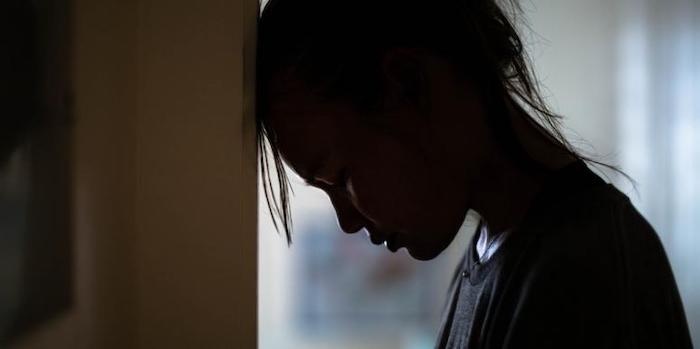
By Kim Hooper
Twelve hours after my dad died, ten hours after I watched two mortuary employees wheel his body out the front door and into a white van, I went to pick up my three-year-old daughter from preschool.
I hadn’t seen her in two days, the days I spent at my dad’s bedside, curled into his alarmingly thin body, watching his breaths get shallower, feeling his toes get colder. I assumed she’d be excited to see me, and that this excitement would buoy me, keep me from drowning in the cold, vast ocean of despair in which I’d found myself.
But when she saw me, she threw her artwork at my face and said, “What are you doing here?”
I’d thought I’d cried all my tears for that day, though I was completely drained dry, when she swatted my hand on the way to the car, I discovered I had more.
We drove to my parents’ house, which I realized I would now have to call “my mom’s house,” to gather for a surreal family dinner without our patriarch. My sister’s three kids ran around playing as if nothing had changed. Her youngest, five years old, screamed with jarring enthusiasm, “Gee-Paw is dead!”
At this, my daughter looked at me, a puzzled expression on her face. I knelt down to her and braced myself for her devastation. But when I told her he had died, she simply repeated what her cousin had said: “Gee-Paw is dead!” And the playing continued.
I resented her ability to carry on, her dismissal of the gravity of this event. She’s only three. In that moment, and in the days that followed, I kept telling myself this, willing myself to excuse her. My life had become and would continue to be, an unsettling juxtaposition of my profound grief and her perpetual joy.
My dad was diagnosed with Creutzfeldt-Jakob Disease just three months before he died from it. In those three months, I buckled under the weight of competing roles — devoted daughter and attentive mother. I fed my daughter macaroni and cheese; I fed my dad oatmeal.
I took my daughter to birthday parties; I took my dad to the hospital. I helped my daughter into her car seat; I helped my dad into his wheelchair.
I lay next to my daughter to read bedtime stories; I lay next to my dad to whisper “I’m going to miss you.” I held my daughter’s hand while we danced along with episodes of Bubble Guppies; I held my dad’s hand while it turned spastic, clenching shut on my fingers with a force that said don’t leave me.
I have been burdened by this belief that I am not grieving well enough or mothering well enough.
Dr. Huong Diep, a board-certified psychologist, summed it up perfectly: “There is the guilt, the wanting to take care of a parent who sacrificed so much for you, but also resentment as you have to take care of your own children, whose needs don’t stop because of a dying grandparent,” she said. “There is no such thing as balance in these situations. When you do things to feel like a ‘good’ daughter, you may then feel like a ‘bad’ parent and vice versa. There is no winning in this situation.”
People have said I need to take care of myself and I’ve thought: But how?
Leading up to my dad’s death, I was on the phone with doctors, the caregiving agency, the mortuary, the clinical study team. I was keeping track of share days at preschool, jumping at trampoline parks, braiding hair, responding (poorly) to tantrums, making one-off trips to the grocery store for beloved squeeze yogurts.
I was working full-time, juggling projects, Zoom calls, deadlines. I had headaches from crying and broken sleep.
Take care of myself? What self? I had become an inhabitant of roles. My self had been decimated.
People have also said it must be comforting to have the distraction of my daughter — my smiling, sunny-dispositioned, epitome-of-delight daughter. What they don’t understand is the emotional whiplash that comes with tending to the needs of the living and the needs of the dying.
It is exhausting to laugh while baking cupcakes one minute and sob in an attempt to write a eulogy the next. There is no predictability, no stability.
On the worst days, I feel like I am one stubbed toe, one internet outage, one sweater-caught-on-a-door-handle away from a nervous breakdown.
Complete Article ↪HERE↩!
